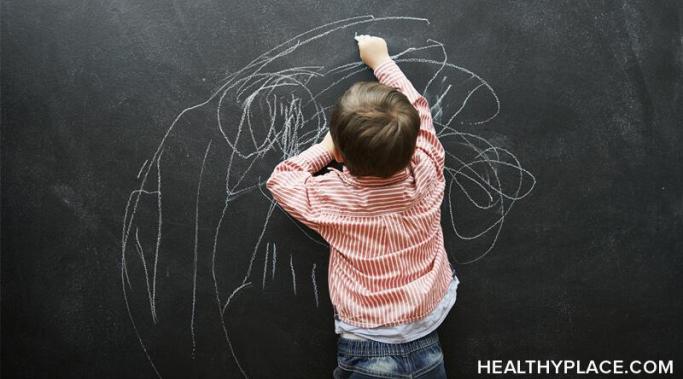How do we know when to worry about temper tantrums in our children? According to recent research, about 83% of preschoolers have regular temper tantrums.1 If you're reading this, I'm guessing you are the parent of at least one of the 83 percent. I was one such parent, too, and my son's tantrums turned out to be the sign of childhood mental illness. How do you know when to worry about temper tantrums because it might be the same for you?
Life with Bob
Losing medical insurance can be devastating for people with mental illness. Even a change in insurance coverage can alter, or even endanger, the lives of people suffering mental illness as long-time relationships with medical providers are destroyed and in-depth, personalized medical knowledge is lost. Losing medical insurance can be very tough.
The stress of change can be difficult for any child, but for children with emotional and behavioral disorders, the stress of change hits harder. They often can't predict their own behaviors, thoughts, or feelings, so it makes things worse when they can't predict their environment either. Life isn't very predictable, though, so how do we help our children with mental illnesses better manage the stress of change?
The main symptom of disruptive mood dysregulation disorder (DMDD) is chronic irritability. "Irritability" is a vague word, though. It doesn't adequately describe how angry and mean our kids with DMDD can get or how demoralizing it feels. As parents, we work hard to raise decent human beings, then a DMDD outburst erupts and that decency seemingly flies out the door.
February is Teen Dating Violence Awareness Month (TDVAM), spotlighting the fact that every year "approximately 1.5 million high school students nationwide experience physical abuse from a dating partner," according to the Domestic Violence Awareness Project. Awareness of violence in teen and 20-something dating is an important key to turning these statistics around, especially in teens with mental illness, yet three out of four parents never talk to their children about domestic violence. As parents of mentally ill children, it is vital that we address this issue and speak to our teens about dating violence and what to do.
Avoiding bipolar instability because you have the flu is important, but it can be difficult to maintain stability with bipolar disorder while trying to combat the effects of the local virus going around. If you are a parent of a child with bipolar disorder, a simple virus can lead to bipolar instability in your child’s mental health. It becomes a difficult cycle as increased instability with bipolar makes it hard to treat the flu and increased symptoms of the flu make it difficult to control bipolar. However, by planning ahead, parents can lessen the ill-effects of flu season and keep their child’s mental health as intact as possible.
Attention-deficit/hyperactivity disorder (ADHD) and video games: How much screen time do you allow your child with ADHD? I ask because parents of children with ADHD have a love/hate relationship with video games. They can be a huge motivator for our kids. They provide us with rare quiet times. Yet, we're often shamed based on how much screen time our kids get. Using screens is often viewed as poor parenting. I've even been told video games cause my son's ADHD (Stigma Against Parents Who Raise a Child with Mental Illness). These days, asking me about my child's screen time will elicit the same response as asking me about my weight. I will lie about it, then I'll go home and cry.
“Emotional contagion” occurs when we mirror the strong emotions of those around us whether those emotions are negative or positive. As a parent of a mentally ill child, it can be difficult not to "catch" our child’s negative emotions. By employing a few tools, parents can avoid the downward spiral of emotional contagion and help their melting down child find a way back to the positive.
Managing disruptive mood dysregulation disorder (DMDD) in the classroom isn't as simple as knowing how to prevent DMDD behaviors. Yet parents of children with DMDD are often expected to have immediate solutions for teachers and caregivers in our children's lives. Symptoms of DMDD are tough for even parents to handle, and immediate solutions don't exist, but there are doable small steps that can help manage DMDD in the classroom.
Preparing your mentally ill children for natural disasters is vitally important. Knowing what kinds of natural disasters are expected in your area and preparing a plan to deal with a crisis will provide a sense of control and safety to children with mental illness during a natural disaster.









